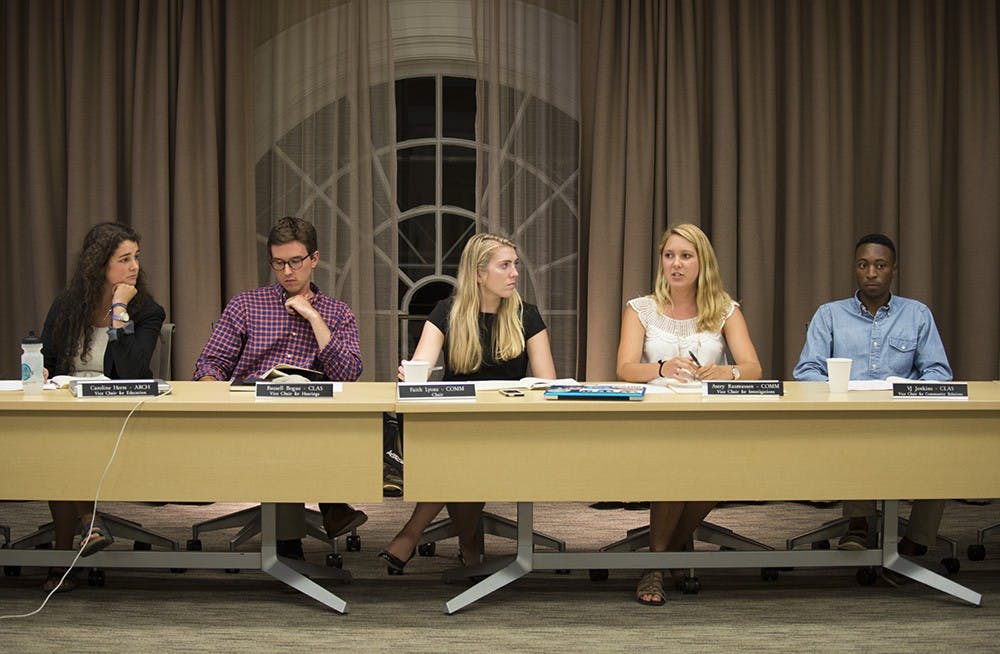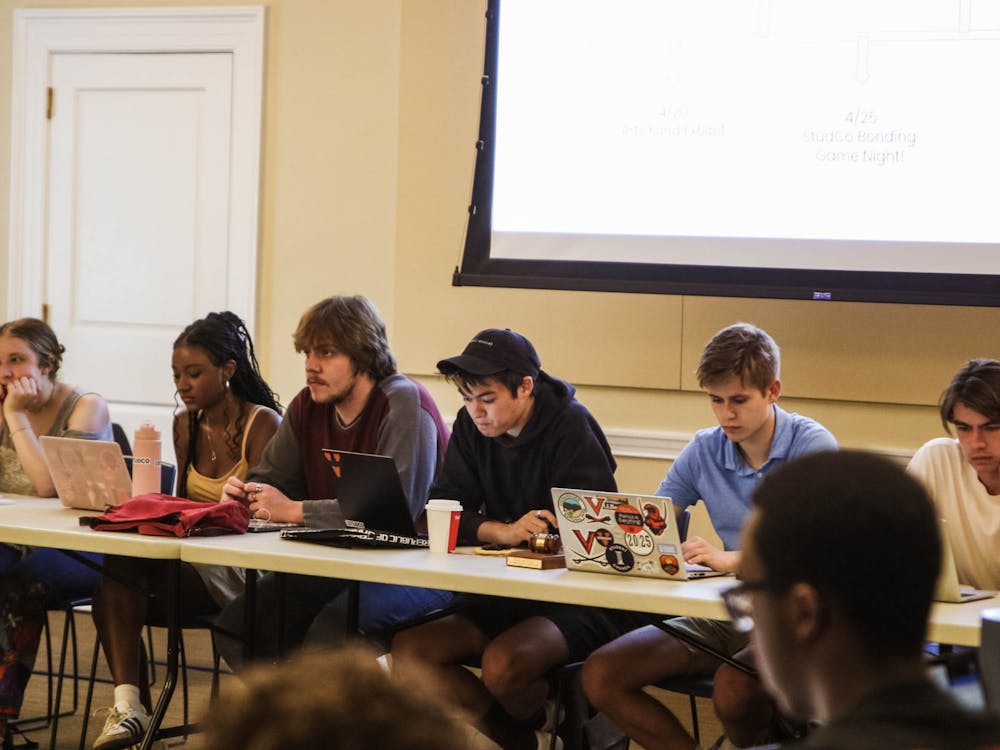Honor Committee members debated Sunday whether to make changes to the informed retraction, a 2013 policy change that gave students accused of an honor offense the choice to take a year of absence instead of going to trial and facing expulsion.
The committee is currently debating whether the informed retraction should cover multiple honor violations.
At present, students can only file an informed retraction for a single act, Vice Chair for Investigations Avery Rasmussen said. This is defined as a single “nexus” of events, meaning “one of the alleged honor events could not occur if the other did not occur.”
The classic example, she said, is if a student cheated on a final exam and then signed a pledge saying he or she did not receive aid.
The committee is now considering if this definition is too strict.
“We’ve seen cases in the past where maybe a student uses the same source to cheat on every lab assignment,” Rasmussen said. “These are extremely related things…but you can only take one IR.”
One such case, cited by the vice chair for education, included a student who committed an honor offense repeatedly on lab assignments throughout the semester, but did so without realizing it. In such cases — characterized by multiple acts that are very interconnected — some committee members argue accused students should still be able to take advantage of the informed retraction.
However, Chair Faith Lyons, a fourth-year Commerce student, said committee members have questioned whether the change would conflict with the policy’s original intent.
“The question that’s being raised by committee is, if there are multiple offenses, it’s not really in line with why the IR was created,” Lyons said.
Rasmussen, who opposes a policy change, said that a change would raise questions about a multiple sanction system.
A decision on whether or not to amend the bylaws will be made within the next few weeks, Lyons said.
Data on reporting in informed retraction cases will be presented at next Sunday’s meeting, she said.
“I think the reporting data will help fill out this conversation,” Lyons said. “After next week, we’ll see if we want to have changes now, or if this will fall into the larger conversation of a multi-sanction system.”
Ideally, Lyons said, any changes to the informed retraction will be made in September to avoid having different cases under different rules. If the informed retraction discussion is rolled into the multi-sanction debate, changes would be part of a proposal expected by February.





